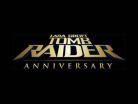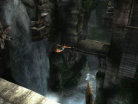- CLASSIC MAGAZINES
- REVIEW CREW
A show recapping what critics thought back
when classic games first came out! - NEXT GENERATION'S BEST & WORST
From the worst 1-star reviews to the best
5-stars can offer, this is Next Generation! - NINTENDO POWER (ARCHIVE)
Experience a variety of shows looking at the
often baffling history of Nintendo Power! - MAGAZINE RETROSPECTIVE
We're looking at the absolutely true history of
some of the most iconic game magazines ever! - SUPER PLAY'S TOP 600
The longest and most ambitious Super NES
countdown on the internet! - THEY SAID WHAT?
Debunking predictions and gossip found
in classic video game magazines! - NEXT GENERATION UNCOVERED
Cyril is back in this spin-off series, featuring the
cover critic review the art of Next Generation! - HARDCORE GAMER MAGAZING (PDF ISSUES)
Download all 36 issues of Hardcore Gamer
Magazine and relive the fun in PDF form!
- REVIEW CREW
- ELECTRONIC GAMING MONTHLY
- ELECTRONIC GAMING MONTHLY RANKS
From Mario to Sonic to Street Fighter, EGM
ranks classic game franchises and consoles! - ELECTRONIC GAMING MONTHLY BEST & WORST
Counting down EGM’s best and worst reviews
going year by year, from 1989 – 2009! - ELECTRONIC GAMING BEST & WORST AWARDS
11-part video series chronicling the ups and
downs of EGM’s Best & Worst Awards!
- ELECTRONIC GAMING MONTHLY RANKS
- GAME HISTORY
- GAME OVER: STORY BREAKDOWNS
Long-running series breaking down game
stories and analyzing their endings! - A BRIEF HISTORY OF GAMING w/ [NAME HERE]
Real history presented in a fun and pithy
format from a variety of game historians! - THE BLACK SHEEP
A series looking back at the black sheep
entries in popular game franchises! - INSTANT EXPERT
Everything you could possibly want to know
about a wide variety of gaming topics! - FREEZE FRAME
When something familiar happens in the games
industry, we're there to take a picture! - I'VE GOT YOUR NUMBER
Learn real video game history through a series
of number-themed episodes, starting at zero! - GREAT MOMENTS IN BAD ACTING
A joyous celebration of some of gaming's
absolute worst voice acting!
- GAME OVER: STORY BREAKDOWNS
- POPULAR SHOWS
- DG NEWS w/ LORNE RISELEY
Newsman Lorne Riseley hosts a regular
series looking at the hottest gaming news! - REVIEW REWIND
Cyril replays a game he reviewed 10+ years
ago to see if he got it right or wrong! - ON-RUNNING FEUDS
Defunct Games' longest-running show, with
editorials, observations and other fun oddities! - DEFUNCT GAMES QUIZ (ARCHIVE)
From online quizzes to game shows, we're
putting your video game knowledge to the test!- QUIZ: ONLINE PASS
Take a weekly quiz to see how well you know
the news and current gaming events! - QUIZ: KNOW THE GAME
One-on-one quiz show where contestants
find out if they actually know classic games! - QUIZ: THE LEADERBOARD
Can you guess the game based on the classic
review? Find out with The Leaderboard!
- QUIZ: ONLINE PASS
- DEFUNCT GAMES VS.
Cyril and the Defunct Games staff isn't afraid
to choose their favorite games and more! - CYRIL READS WORLDS OF POWER
Defunct Games recreates classic game
novelizations through the audio book format!
- DG NEWS w/ LORNE RISELEY
- COMEDY
- GAME EXPECTANCY
How long will your favorite hero live? We crunch
the numbers in this series about dying! - VIDEO GAME ADVICE
Famous game characters answer real personal
advice questions with a humorous slant! - FAKE GAMES: GUERILLA SCRAPBOOK
A long-running series about fake games and
the people who love them (covers included)! - WORST GAME EVER
A contest that attempts to create the worst
video game ever made, complete with covers! - LEVEL 1 STORIES
Literature based on the first stages of some
of your favorite classic video games! - THE COVER CRITIC
One of Defunct Games' earliest shows, Cover
Critic digs up some of the worst box art ever! - COMMERCIAL BREAK
Take a trip through some of the best and
worst video game advertisements of all time! - COMIC BOOK MODS
You've never seen comics like this before.
A curious mix of rewritten video game comics!
- GAME EXPECTANCY
- SERIES ARCHIVE
- NINTENDO SWITCH ONLINE ARCHIVE
A regularly-updated list of every Nintendo
Switch Online release, plus links to review! - PLAYSTATION PLUS CLASSIC ARCHIVE
A comprehensive list of every PlayStation
Plus classic release, including links! - RETRO-BIT PUBLISHING ARCHIVE
A regularly-updated list of every Retro-Bit
game released! - REVIEW MARATHONS w/ ADAM WALLACE
Join critic Adam Wallace as he takes us on a
classic review marathon with different themes!- DEFUNCT GAMES GOLF CLUB
Adam Wallace takes to the links to slice his way
through 72 classic golf game reviews! - 007 IN PIXELS
Adam Wallace takes on the world's greatest spy
as he reviews 15 weeks of James Bond games! - A SALUTE TO VAMPIRES
Adam Wallace is sinking his teeth into a series
covering Castlevania, BloodRayne and more! - CAPCOM'S CURSE
Adam Wallace is celebrating 13 days of Halloween
with a line-up of Capcom's scariest games! - THE FALL OF SUPERMAN
Adam Wallace is a man of steel for playing
some of the absolute worst Superman games! - THE 31 GAMES OF HALLOWEEN
Adam Wallace spends every day of October afraid
as he reviews some of the scariest games ever! - 12 WEEKS OF STAR TREK
Adam Wallace boldly goes where no critic has
gone before in this Star Trek marathon!
- DEFUNCT GAMES GOLF CLUB
- DAYS OF CHRISTMAS (ARCHIVE)
Annual holiday series with themed-episodes
that date all the way back to 2001!- 2015: 30 Ridiculous Retro Rumors
- 2014: 29 Magazines of Christmas
- 2013: 29 Questionable Power-Ups of Christmas
- 2012: 34 Theme Songs of Christmas
- 2011: 32 Game Endings of Christmas
- 2010: 31 Bonus Levels of Christmas
- 2009: 30 Genres of Christmas
- 2008: 29 Controls of Christmas
- 2007: 34 Cliches of Christmas
- 2006: 33 Consoles of Christmas
- 2005: 32 Articles of Christmas
- 2004: 31 Websites of Christmas
- 2003: 29 Issues of Christmas
- 2002: 28 Years of Christmas
- 2001: 33 Days of Christmas
- NINTENDO SWITCH ONLINE ARCHIVE
- REVIEW ARCHIVE
- FULL ARCHIVE
Tomb Raider: Anniversary
I'm always impressed at the bad design issues we'll put up with because we don't know any better. Think back to all of the classic games we grew up loving only to experience them again a decade later and find them practically unplayable. A perfect example of this would have the be the original Tomb Raider, the classic 1996 adventure game that introduced the world to one of the biggest video game stars of all time, Lara Croft. With its insanely frustrating puzzles, unflinchingly difficult jumps and a control scheme that seemed to work against you at every turn, Tomb Raider is one of those games that are almost impossible to enjoy eleven years later.
Perhaps this is the reason that Eidos Interactive (along with developer Crystal Dynamics) felt that it was a perfect candidate to be remade. A lot of game remakes fall into the trap of only updating the graphics and sound, but in Tomb Raider: Anniversary the developers have gone back to not only reimage the best elements from the first game, but fix all of the problems that makes the 1996 version so unplayable. It may not do anything new or original, but this classic remake is a much needed reminder of why everybody liked the original Tomb Raider all those years ago.
This brand new Xbox 360 game turns out to not be very new at all. Tomb Raider: Anniversary is actually a port of a game that was released on the PlayStation 2, PSP and PC earlier in the year. This not quite new, not quite old video game remake is built out of the same engine that powered the 2006 surprise hit, Tomb Raider Legends. In some ways that's a good thing, since Tomb Raider Legends was hailed as a return to form for Lara Croft. But at the same time this opens up the possibility for critics to argue that this is nothing more than a shameless cash cow. I don't subscribe to the latter way of thinking; instead I'm happy to see Lara's first adventure retold using this brand new engine.
If you haven't played the original Tomb Raider (or any Tomb Raider game, for that matter), then here's what you've been missing: Tomb Raider tells the story of a young female adventurer named Lara Croft (think: Indiana Jones with enormous breasts). In this particular adventure we find Lara fighting through the lost tomb of Qualopec in hopes of recovering a mysterious artifact called the Scion of Atlantis. Of course, finding the Scion isn't going to be as easy as it sounds. In order to succeed Lara is going to have to brave the dark caves, fight plenty of wild animals and solve a number of difficult puzzles. She's also going to have to use her acrobatic skills to jump over large holes, climb up rocks and shimmy through tight areas. Will you be able to weather the elements and survive long enough to find the artifact? Let's hope so, because Lara is depending on you.
While the simple story is nothing to write home about, it does its job to set up a reason for you to get yourself into exotic locations so that you can solve puzzles, make extremely difficult jumps and fight a bunch of animals and dinosaurs. It's the exploration coupled with the ingenious puzzles that makes Tomb Raider what it is, and if that's what you're looking for then this remake will deliver the goods. Obviously if you're looking for an involving story, non-stop action and mindless fun, then Tomb Raider isn't for you. But then again, by now you should know what to expect from a Tomb Raider game ... especially one that came out eleven years ago.
As in the original 1996 game, Tomb Raider: Anniversary will take you all over the world in search of adventure and hidden treasure. You'll start out your quest in Peru searching through dangerous caves, eventually you'll move on to abandoned buildings in Greece, the temples of Egypt and the mines and pyramids of the Lost City. All along the way you will be asked to solve increasingly more difficult puzzles that will require you to hunt down specific items and intimately learn your surroundings. While the puzzles in the first few areas won't seem that hard, by the time you've made it to Egypt and the Lost City you'll be rushing for the guide to see just exactly where you're supposed to go and what you're supposed to do. The good news is that none of the puzzles feel nonsensical, you always feel like these brain teasers fit in with the environment and what you're trying to do.
In the 1996 game these puzzles were made all the more difficult by a control scheme that worked against you at every turn. In the original version jumps were practically impossible, you not only had to line them up perfectly, but many of them required you to get a running jump which was beyond frustrating given the title's awkward controls. Thankfully Tomb Raider: Anniversary doesn't have that problem. Instead of keeping the game's original control scheme, Anniversary completely throws out the clumsy old controls and streamlines them in a lot of good ways. Jumps are no longer a frustrating endeavor, the developers have finally gotten it through their heads that the fun of these games is not battling the controls, but rather being able to solve these complex puzzles and navigating the large worlds.
To that end, the controls in Tomb Raider: Anniversary actually feels pretty good. Climbing up and down ledges, somersaulting out of the way of enemies, shimmying from side to side and grabbing on to ledges all feels natural, and I don't think I'm risking my credibility to say that this Tomb Raider remake controls about as well as you can expect the series to control. There's always room for improvements, but I don't think too many people will have issues moving Lara Croft around the screen this time around.
When you're not navigating around the large (and often interesting) environments, you're forced to deal with a lot of wild animals. For the most part the combat is good, though it's certainly nothing you haven't seen before in other 3D action games. The way it works is that you basically hold down the trigger to lock on to your opponent and then start laying into them. Thankfully there are a few additions to this mechanic, including an adrenaline dodge that you can activate at the push of a button. Basically the adrenaline dodge slows down time for a few seconds and allows you to jump out of the way, while at the same time you can pinpoint where you want your bullets to hit (effectively giving you a headshot). But even with the slight gameplay additions, Tomb Raider: Anniversary is still more about exploration and puzzle solving than gunplay.
With only four locations (albeit with several sub-sections each), Tomb Raider: Anniversary isn't the longest adventure game you'll play this year. Part of this has to do with the source material; by and large games from the 1990s were shorter than the types of games we play today. Having said that, if you're new to the puzzles (or haven't played the original game in so long that you've completely forgotten the solutions to the puzzles) the game will take you a good amount of time to complete. I doubt that most people will come away from Tomb Raider: Anniversary feeling that they didn't get their money's worth, especially since this game is carrying a budget price (around $40).
Even though it's hardly the best looking game on the platform, this brand new Tomb Raider game definitely upgrades the graphics from the original. Not that this is a hard task to accomplish, the original is 11 years old and on a console that is now two generations removed. Even though psychologically I know this game looks much better (in every single way possible), part of me can't help but wonder what it would look like if this game was originally programmed to be a "next-gen" game. That's not to say the graphics look bad (because they definitely don't), but at its best it looks more like a slightly more detailed PlayStation 2 game. Of course, I would argue that the late-generation PlayStation 2 games certainly look good (maybe even on par with some early-generation Xbox 360 games), but it's just not the same as having a game made for the high definition generation.
Thankfully the game's graphics actually improve over the course of the game, and just about the time you're getting tired of seeing the same kind of environment, the game completely switches up the location so that to keep you engaged with the adventure. Oddly enough, the worst looking parts of the game are often the cinemas, which look a little stiff and are never as convincing as you would like them to be. The good news is that once you start playing the game the brilliant animation shows up and everything starts to look pretty again. In fact, I can't say enough good things about how the game animates. Even when you're messing up, you'll always enjoy bouncing around because of the way Lara moves around the environment. But at the same time part of me wonders what a next-gen exclusive Tomb Raider would look like; I can only imagine how much better it would look than this port.
While the graphics won't blow you away, the sound quality is surprisingly good. Taking notes from the original game, Tomb Raider: Anniversary doesn't offer a lot of music, but what's there is often good. The sound effects are also nice, though they tend to be the same sort of sounds you've heard in countless other games. The game does have a nice ambience, so I doubt you'll be too disappointed with the presentation.
It hasn't been easy to be a Tomb Raider fan for the last decade. Between all of the terrible sequels and the cheapening of the Lara Croft brand, Tomb Raider fans have had a lot to be depressed about. Thankfully this Xbox 360 remake is a great game that was certainly needed. This is the kind of game that will not only impress fans of the original game, but also introduce Lara to a new audience who never understood what all the fuss was about. With its attractive price and workable controls, Tomb Raider: Anniversary is easy to recommend to anybody who enjoys exploring dank and dark caves looking for hidden treasure.
HOME |
CONTACT |
NOW HIRING |
WHAT IS DEFUNCT GAMES? |
NINTENDO SWITCH ONLINE |
RETRO-BIT PUBLISHING
Retro-Bit |
Switch Planet |
The Halcyon Show |
Same Name, Different Game |
Dragnix |
Press the Buttons
Game Zone Online | Hardcore Gamer | The Dreamcast Junkyard | Video Game Blogger
Dr Strife | Games For Lunch | Mondo Cool Cast | Boxed Pixels | Sega CD Universe | Gaming Trend
Game Zone Online | Hardcore Gamer | The Dreamcast Junkyard | Video Game Blogger
Dr Strife | Games For Lunch | Mondo Cool Cast | Boxed Pixels | Sega CD Universe | Gaming Trend
Copyright © 2001-2025 Defunct Games
All rights reserved. All trademarks are properties of their respective owners.
All rights reserved. All trademarks are properties of their respective owners.





























